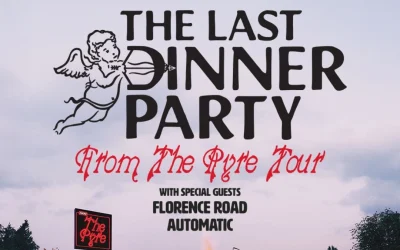A new bill in Connecticut that would improve consumer protections and make ticketing more transparent was approved out of a subcommittee Tuesday and is inching along to a possible vote this spring or summer by the state’s General Assembly.
The proposed bill, No. 5228, marks the first time ticketing legislation with strong transparency measures has been voted out of a state legislative committee. Other states have grappled with similar language, such as in Minnesota, but those bills have not yet moved forward.
The Connecticut bill, which has undergone some tightening since last month when it was discussed at a public hearing before the General Law Committee, states:
Each owner, lessee, operator or manager of a venue having seating for more than three thousand persons shall release the following information to the general public for each entertainment event, including, but not limited to, a sporting event, concert or theatrical or operatic performance, for which tickets are offered for sale to the general public: (1) The total number of tickets available for the event, (2) the number of tickets released by such owner, lessee, operator or manager for sale to the public, and (3) the number of tickets for the event that are unavailable for purchase due to stage design or maintenance or other issues that prevent the use of seats in the venue.
The bill requires that the information requested above “be released not later than two days after tickets are first offered for sale to the general public,” and it considers fan club tickets as being among those made available to the general public. The heavily Democratic General Law Committee voted 16-3 to approve the bill, and while it received bipartisan support, the three no votes were from Republicans.
Rep. Jim Shapiro, co-chairman of the General Law Committee who is spearheading the passage of the bill, could not be reached for comment.
Following Tuesday’s vote, the bill is now headed to the legislature’s Judiciary Committee for review, and if it gains approval there it could move to the floor of the General Assembly for a vote.
In addition to the transparency language, the bill also protects consumers by allowing season ticket holders who decide to resell their tickets to be able to do so without being penalized by a team or other issuer of the ticket subscription, and it prohibits that entity from denying entry to anyone who uses a resold ticket. And, the bill also outlaws the use of “bot” software programs that can bypass online security measures and quickly buy large blocks of tickets. Such programs are currently the focus of a federal case allegedly involving a Nevada-based company called Wiseguy Tickets.
During last month’s public hearing, Hartford’s XL Center and Ticketmaster objected to the bill because they thought it would act as a disincentive for acts to play in Connecticut because those acts would be forced to disclose ticketing information that they generally keep private.


